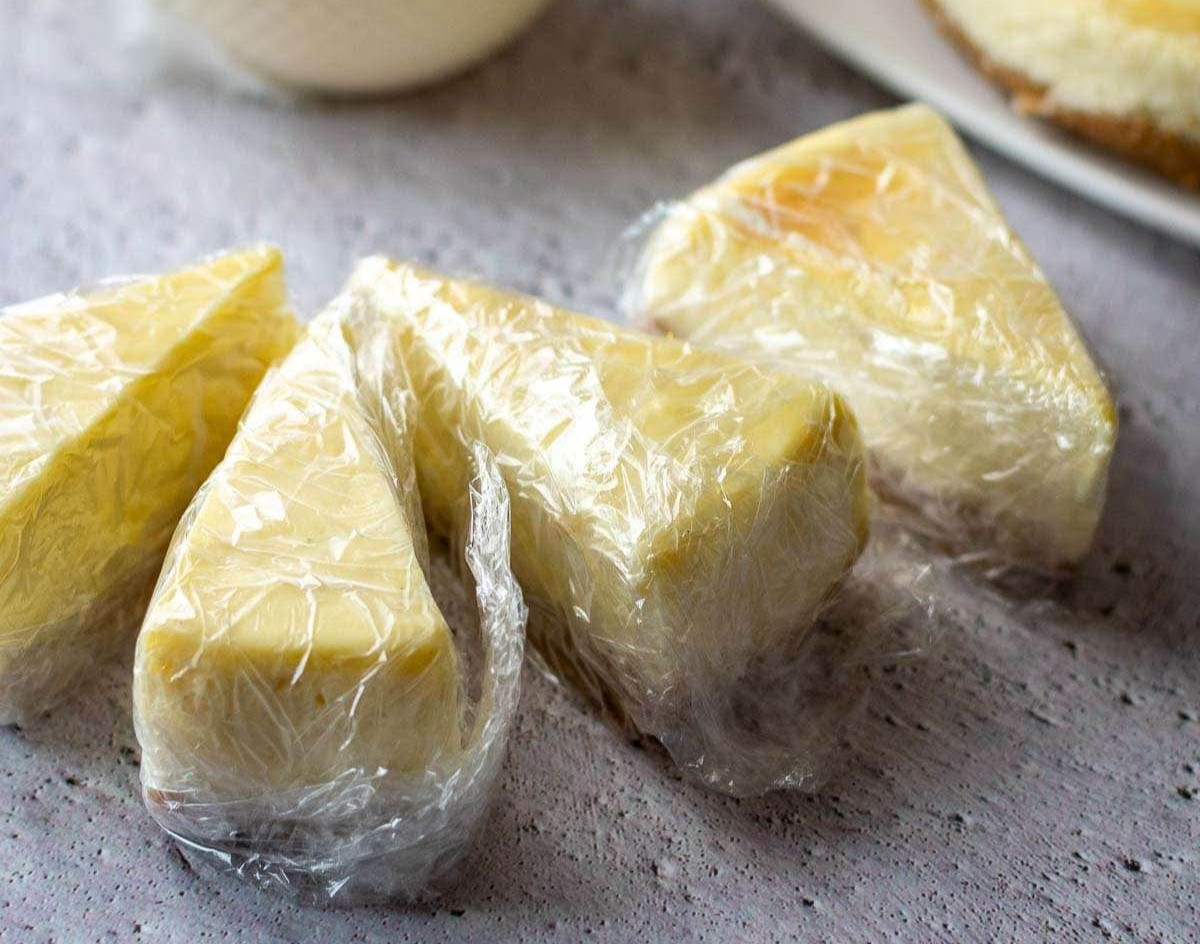

Articles
How To Store Probiotics
Modified: December 7, 2023
Discover the best articles on how to store probiotics to maximize their benefits and maintain their potency. Learn proper storage techniques to ensure the effectiveness of your probiotic supplements.
(Many of the links in this article redirect to a specific reviewed product. Your purchase of these products through affiliate links helps to generate commission for Storables.com, at no extra cost. Learn more)
Introduction
Welcome to the world of probiotics, where beneficial bacteria work their magic to support your gut health and overall well-being. Probiotics have gained immense popularity in recent years for their potential to boost digestion, strengthen the immune system, and promote a healthy balance of gut flora. However, it’s important to note that not all probiotics are created equal, and their effectiveness depends on various factors, including proper storage.
In this article, we will dive into the fascinating realm of probiotics and explore the importance of storing them correctly. Whether you are a seasoned probiotic enthusiast or just getting started, understanding the best ways to store these valuable supplements will help ensure that you receive their maximum benefits.
Key Takeaways:
- Proper storage of probiotics is crucial to maintain their viability and effectiveness. Factors such as temperature, moisture, and light can impact their potency, so follow recommended storage guidelines to maximize their health benefits.
- Whether stored at room temperature, in the refrigerator, or in the freezer, probiotics require specific conditions to preserve their potency. By following storage tips and handling them with care, you can ensure their maximum effectiveness and support your gut health.
Read more: What Is Seed Probiotic
Understanding Probiotics
Before we delve into the intricacies of storing probiotics, let’s first gain a clear understanding of what they are and how they work. Probiotics are live microorganisms that, when consumed in adequate amounts, confer health benefits to the host. These microorganisms mainly consist of bacteria strains, such as Lactobacillus and Bifidobacterium, as well as some yeasts.
The human body hosts trillions of bacteria, both beneficial and harmful, in the gut. Probiotics work by introducing specific strains of beneficial bacteria into the gut microbiota, thereby promoting a healthy balance. They help in various ways, including aiding digestion, enhancing nutrient absorption, supporting the immune system, and even influencing emotional well-being.
Probiotics can be found naturally in certain foods like yogurt, sauerkraut, and kimchi. They are also available in the form of dietary supplements. While individual needs and preferences may vary, many people turn to probiotic supplements to ensure a consistent intake of beneficial bacteria and maximize their health benefits.
Importance of Proper Storage
Probiotics are delicate living organisms that require specific conditions to maintain their viability and effectiveness. Proper storage is crucial to ensure that the probiotics remain active and alive until the expiration date, allowing you to reap their full benefits.
Exposure to unfavorable conditions, such as heat, moisture, light, and oxygen, can compromise the viability of probiotics. High temperatures can accelerate the deterioration of probiotics, while moisture can promote the growth of unwanted bacteria or mold. Light and oxygen can also contribute to the degradation of probiotics over time.
When probiotics are improperly stored, their potency may be significantly reduced, rendering them less effective or even completely ineffective. Consuming probiotics that have lost their viability not only fails to provide the desired health benefits but may also cause digestive discomfort or other side effects.
Furthermore, probiotic supplements are often packaged in opaque containers or blister packs to protect them from light. This is because light exposure can damage the probiotic cells and decrease their activity. By storing probiotics correctly, you can ensure that they retain their potency and efficacy throughout their shelf life.
It’s worth noting that different probiotic strains may have specific storage requirements, as mentioned on the product label or provided by the manufacturer. Therefore, it’s essential to follow the recommended storage instructions to optimize the lifespan and effectiveness of your probiotics.
Best Ways to Store Probiotics
To maximize the effectiveness of your probiotics and extend their shelf life, here are some of the best ways to store them:
- Room Temperature Storage: Some probiotic supplements are formulated to withstand room temperature, making them convenient for travel or if refrigeration is not readily available. However, it’s important to ensure that the room temperature is controlled and does not exceed the manufacturer’s recommended range.
- Refrigerator Storage: Most probiotic supplements benefit from refrigeration. The cool temperature of the refrigerator helps slow down the degradation of probiotics, preserving their potency. When storing probiotics in the refrigerator, keep them away from the door and any sources of moisture to prevent exposure to temperature fluctuations and condensation.
- Freezer Storage: Freezing probiotics can help prolong their shelf life even further. Freezing suspends the metabolic activity of the probiotic bacteria, keeping them in a state of dormancy. However, not all probiotics can withstand freezing temperatures, so it’s essential to check the storage instructions provided by the manufacturer.
It’s important to note that fluctuating temperatures can be detrimental to probiotics, so it’s best to choose a storage method and stick to it consistently. Avoid transferring probiotics between different storage conditions, as this can expose them to temperature fluctuations and compromise their viability.
Additionally, always check the product label or consult the manufacturer for specific storage instructions. Some probiotics may require refrigeration even if they are stable at room temperature, while others may be best stored in their original blister packs to protect them from light and moisture.
By following these storage guidelines, you can ensure that your probiotics remain viable and potent, allowing you to experience their full health benefits.
Room Temperature Storage
Room temperature storage is a convenient option for probiotic supplements that are formulated to withstand higher temperatures. However, it’s important to note that not all probiotics can be stored at room temperature, so always refer to the product label or manufacturer’s instructions for specific storage recommendations.
When storing probiotics at room temperature, it’s crucial to ensure that the room temperature remains within the range specified by the manufacturer. Generally, a temperature range of 68-77°F (20-25°C) is considered ideal for room temperature storage of probiotics.
To maintain the quality and effectiveness of probiotics stored at room temperature, it’s essential to keep them away from sources of heat, moisture, light, and oxygen. Here are some tips for proper room temperature storage:
- Store in a cool, dry place: Choose a cool area in your home that is away from direct sunlight and sources of heat, such as radiators or kitchen appliances. Avoid storing probiotics in areas prone to humidity, like the bathroom, as moisture can compromise their integrity.
- Keep the probiotics in their original packaging: The original packaging is designed to maintain the product’s viability and protect it from external factors. Avoid transferring probiotics to other containers that may expose them to light or unwanted moisture.
- Seal the container properly: Ensure the container or bottle is tightly sealed after each use to prevent exposure to air, which can degrade the probiotics. This will help maintain the potency of the probiotics until the expiration date.
- Monitor the room temperature: Regularly check the room temperature where the probiotics are stored to ensure it remains within the recommended range. Fluctuating temperatures can compromise the viability of the probiotics, so it’s important to maintain a stable environment.
By following these guidelines, you can effectively store probiotics at room temperature and maintain their potency and effectiveness throughout their shelf life.
Store probiotics in a cool, dry place away from direct sunlight and heat. The refrigerator is the best option for long-term storage to maintain their potency.
Read more: How To Store Store-Bought Bread
Refrigerator Storage
Refrigerator storage is one of the most common and effective methods for preserving the viability of probiotics. The cool temperature of the refrigerator helps slow down the degradation of probiotic bacteria, allowing them to maintain their potency and effectiveness for a longer period.
Here are some tips for storing probiotics in the refrigerator:
- Choose the right spot: Find a designated spot in your refrigerator to keep your probiotics. It’s best to place them on a middle shelf, away from the door where temperature fluctuations are more likely to occur.
- Keep them away from moisture: Moisture can be detrimental to probiotics, so make sure to store them in a dry area of the refrigerator. Avoid placing them near the back of the fridge where condensation can accumulate.
- Use opaque containers: Most probiotic supplements are packaged in opaque containers to protect them from light exposure, which can degrade probiotics over time. Ensure that the container is properly sealed to prevent moisture from entering.
- Check the temperature: Monitor the temperature of your refrigerator to ensure it stays between 36-46°F (2-8°C), as this range is considered optimal for storing probiotics. Avoid opening the refrigerator frequently to prevent temperature fluctuations.
- Follow the expiration date: Probiotic supplements have an expiration date for a reason. Even when stored correctly, their potency may decrease over time. It’s important to consume them before the expiration date to ensure maximum efficacy.
Refrigerator storage can help prolong the shelf life of probiotics and ensure that they maintain their beneficial properties. By following these storage tips, you can have peace of mind knowing that your probiotics are protected and ready to support your gut health.
Freezer Storage
Freezer storage can be a viable option for extending the shelf life of certain probiotic supplements. Freezing probiotics suspends their metabolic activity, effectively preserving their viability and potency for an extended period. However, it’s important to note that not all probiotics can withstand freezing temperatures, so always check the product label or manufacturer’s instructions for specific storage guidelines.
If your probiotic supplement is suitable for freezing, here are some tips for proper freezer storage:
- Wrap the packaging properly: Before placing the probiotics in the freezer, ensure they are tightly wrapped or sealed to protect them from moisture and freezer burn. Consider using an airtight container or freezer bag to provide an extra layer of protection.
- Select the right temperature: Set your freezer to a temperature of 0°F (-18°C) or lower. This temperature range is ideal for preserving the viability of probiotics without causing damage to the cells.
- Organize and label: Keep probiotics in a specific section of your freezer and label them with the date of freezing. This will help you keep track of their storage time and ensure you use the oldest ones first.
- Avoid repeated thawing and freezing: When you remove a probiotic supplement from the freezer, it’s best to use it promptly. Repeatedly thawing and refreezing can affect the viability and quality of the probiotics.
- Monitor storage time: While freezing can significantly extend the shelf life of probiotics, they will still have an expiration date. It’s important to consume them within the recommended timeframe to ensure their maximum effectiveness.
Freezer storage can be particularly useful if you have a large supply of probiotics or if you want to stock up during sales or promotions. By following these guidelines, you can safely store probiotics in the freezer and prolong their viability, ensuring you have a steady supply of beneficial bacteria when needed.
Tips for Extending Probiotic Shelf Life
While proper storage methods can help maintain the viability of probiotics, there are additional steps you can take to further extend their shelf life. By implementing these tips, you can maximize the effectiveness and potency of your probiotics:
- Check the expiration date: Always check the expiration date on the packaging before purchasing or consuming probiotics. Using them within their designated shelf life ensures optimal potency.
- Handle with clean hands: When handling probiotic supplements, ensure that your hands are clean to prevent introducing unwanted contaminants that may compromise their integrity.
- Avoid exposure to moisture: Moisture can degrade probiotics, so it’s important to store them in a dry environment and keep them away from areas with high humidity.
- Don’t mix with hot drinks or foods: Avoid mixing probiotic supplements with hot drinks or foods, as high temperatures can be detrimental to the live organisms.
- Use a spoon, not wet hands: When taking probiotic capsules or powders, use a dry spoon instead of wet hands to prevent introducing moisture into the container.
- Keep them away from strong odors: Probiotics can absorb strong odors, potentially altering their taste and effectiveness. Store them away from strongly scented items in your pantry or refrigerator.
- Store away from medications: Medications like antibiotics or antifungal drugs can adversely affect the viability of probiotics. Store them separately to prevent any potential interaction.
- Start with fresh batches: When purchasing probiotics, choose products with a later expiration date to ensure you have the maximum shelf life to utilize.
- Follow the recommended dosage: Adhering to the recommended dosage of probiotics helps prevent wastage and ensures that you have an adequate supply until the expiration date.
- Consult a healthcare professional: If you have any concerns or questions about storing probiotics, it is always best to consult a healthcare professional who can provide personalized advice based on your specific needs and circumstances.
By following these tips, you can optimize the shelf life of your probiotics and ensure that you receive their maximum health benefits.
Conclusion
Probiotics are incredible allies in supporting gut health and overall well-being. To fully harness the benefits of these beneficial microorganisms, proper storage is essential. Whether you opt for room temperature, refrigerator, or freezer storage, following the recommended guidelines will help maintain the viability and potency of probiotics.
Understanding the delicate nature of probiotics and the impact of various factors such as temperature, moisture, light, and oxygen is key to preserving their effectiveness. By ensuring that probiotics are stored in suitable conditions and away from harmful influences, you can prolong their shelf life and receive their full health-promoting benefits.
Remember to always check the product label or consult the manufacturer’s instructions for specific storage recommendations. Different probiotic strains may require specific conditions, and it’s crucial to follow the provided guidelines to ensure optimal storage.
By handling probiotics with clean hands, keeping them away from moisture and strong odors, and monitoring their expiration dates, you can maximize their shelf life and maintain their potency. Additionally, following the recommended dosage and consulting a healthcare professional when needed can further enhance your probiotic experience.
So, whether you choose to store your probiotics at room temperature, in the refrigerator, or even in the freezer, proper storage is key to preserving the life and potency of these valuable microorganisms. By incorporating these storage tips into your probiotic routine, you can confidently continue on your path to a healthier gut and overall well-being.
Frequently Asked Questions about How To Store Probiotics
Was this page helpful?
At Storables.com, we guarantee accurate and reliable information. Our content, validated by Expert Board Contributors, is crafted following stringent Editorial Policies. We're committed to providing you with well-researched, expert-backed insights for all your informational needs.















0 thoughts on “How To Store Probiotics”